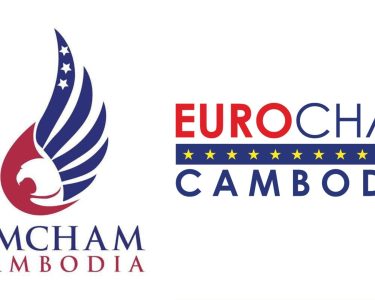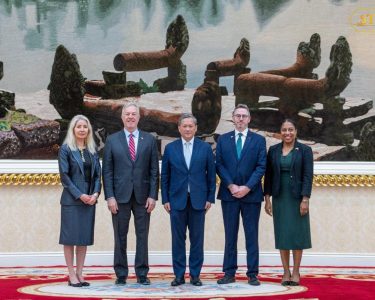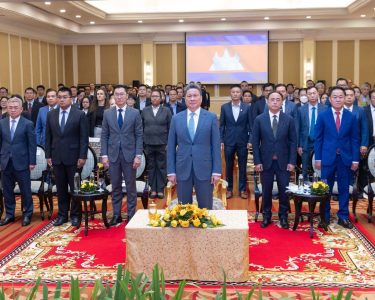Cambodia Investment Review
The 3rd Cambodia–Europe Public–Private Sector Dialogue (PPSD) convened in Phnom Penh this week, strengthening cooperation between the Royal Government of Cambodia and the European business community to advance reforms in infrastructure, logistics, taxation, and green growth.
Organized by EuroCham Cambodia in partnership with the Council for the Development of Cambodia (CDC) and the Delegation of the European Union to Cambodia, the meeting gathered senior officials, ambassadors, and business leaders to discuss practical ways to improve Cambodia’s investment climate and attract sustainable European investment.
Strengthening Partnerships for Growth
The session opened with remarks from H.E. Sun Chanthol, Deputy Prime Minister and First Vice-Chairman of the CDC, Mr. Gabriele Faja, Chairperson of EuroCham Cambodia, and EU Ambassador Igor Driesmans.
Read More: EuroCham Cambodia Says Business Must Co-Create Training to Future-Proof Jobs
Mr. Faja highlighted EuroCham’s commitment to supporting Cambodia’s long-term development goals through policy engagement and reform dialogue. “This platform represents more than discussion; it’s about tangible collaboration,” he said, stressing that aligning public and private priorities can help make Cambodia a more competitive and sustainable investment destination.
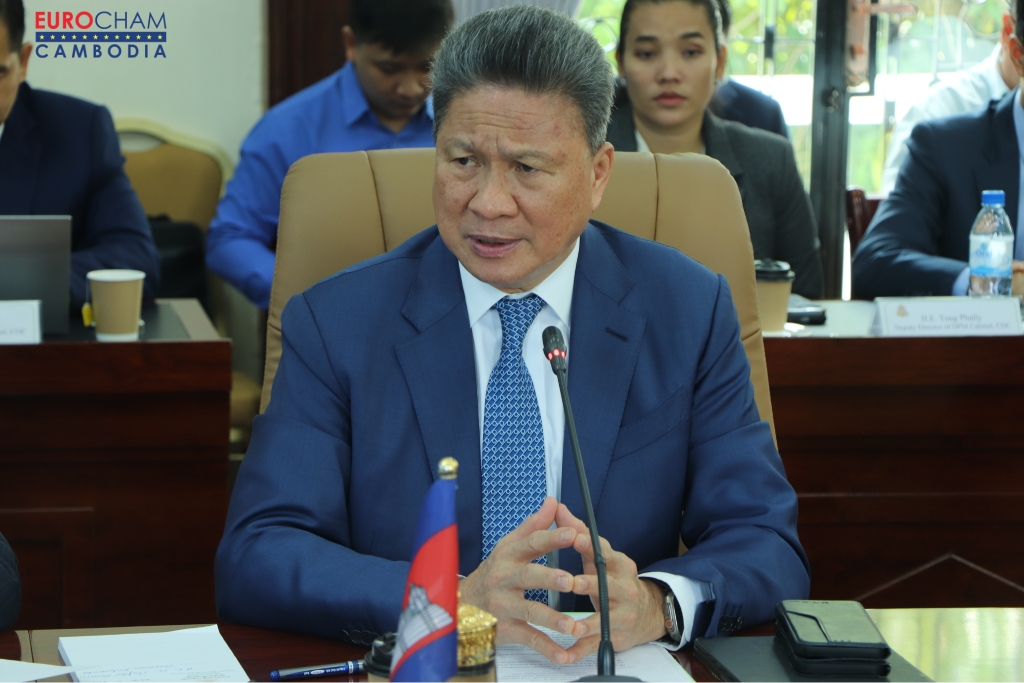
Infrastructure and Administrative Efficiency
Infrastructure investment emerged as a key topic, with EuroCham proposing closer coordination with the CDC to map priority projects and clarify investment procedures for Public–Private Partnerships (PPPs) and Unsolicited Project Proposals. The initiative aims to enhance transparency and accessibility for European investors seeking opportunities in Cambodia’s growing infrastructure sector.
Complementing this, EuroCham raised the idea of a joint initiative with the CDC and relevant ministries to reduce bureaucratic barriers and improve efficiency in public–private interactions. The proposal would focus on streamlining administrative processes and cutting red tape through practical technical cooperation.
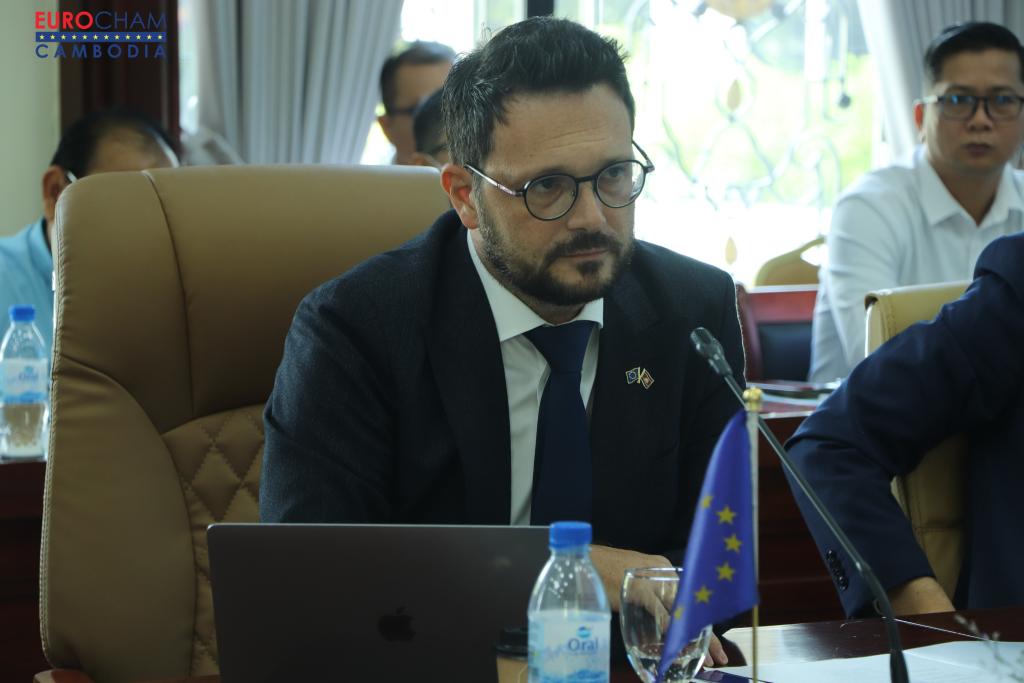
Improving Logistics and Industry Standards
In logistics, EuroCham presented its Sihanoukville Autonomous Port Policy Recommendation Paper, which suggested 24/7 customs gate operations and incentives for increased use of the Phnom Penh–Sihanoukville Expressway to reduce port congestion.
The Transport and Logistics Committee also shared progress made with the General Department of Customs and Excise (GDCE), including simplified paperwork and faster clearance procedures that have improved productivity by almost 50%. New recommendations included introducing a “single entry” customs process and accelerating digitalization of export documentation to further enhance efficiency.
The automotive sector was another key focus, with EuroCham calling for a harmonized national definition of “new vehicles” to create fair competition between authorized distributors and grey importers. The Ministry of Economy and Finance is currently working with the GDCE and the Ministry of Commerce to align definitions and ensure consistent market regulation.
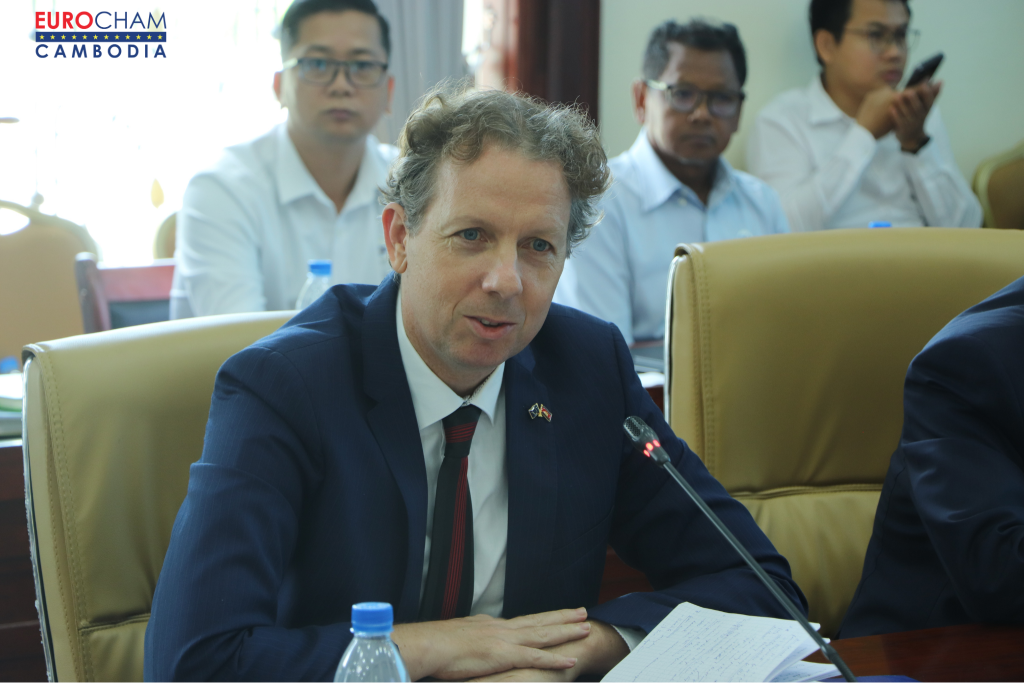
Green Growth and Tax Reform
The dialogue also placed emphasis on promoting Cambodia’s green economy. EuroCham proposed regulatory improvements to encourage textile recycling and streamline Environmental Impact Assessment (EIA) procedures. These reforms aim to attract more investment in circular manufacturing and ensure transparent, merit-based approval systems for environmentally responsible projects.
EuroCham further commended the government’s Special Tax Audit Unit for enhancing transparency and investor confidence. The chamber announced the launch of a new Taxation Committee to strengthen collaboration with the General Department of Taxation (GDT) and foster a more predictable business environment.
Renewable energy also featured in the discussions, with a focus on Renewable Energy Certificates and rooftop solar systems. EuroCham proposed new approaches to help European companies in Cambodia continue progressing toward their Net Zero targets by 2030.
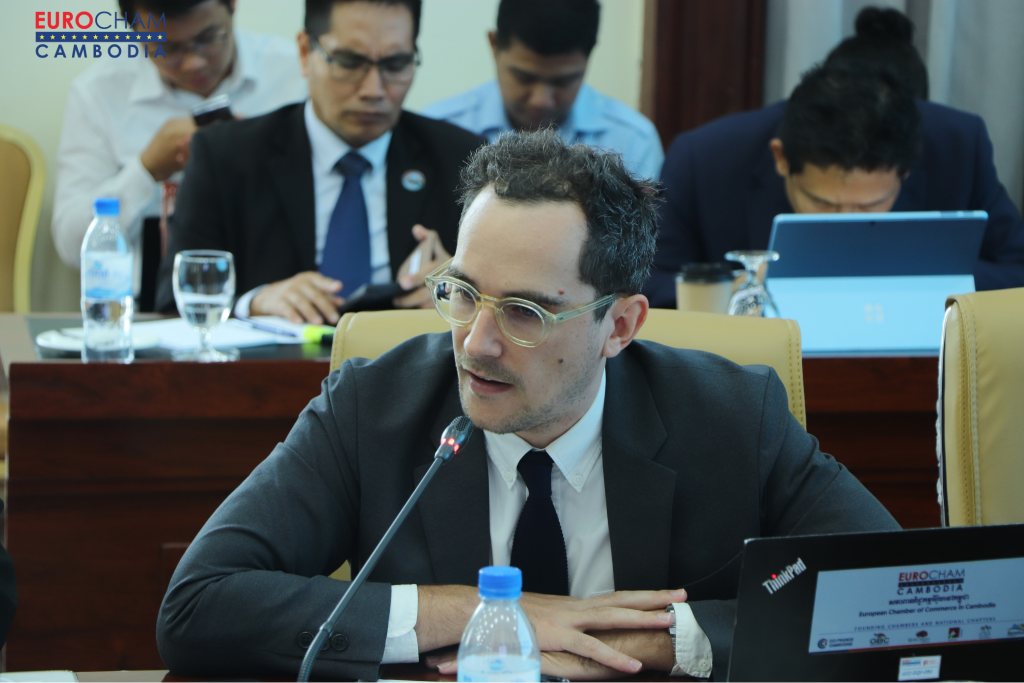
Deepening Economic Cooperation
The dialogue concluded with a renewed commitment from both sides to strengthen cooperation and continue addressing policy challenges ahead of the next session in 2026.
Since its establishment in 2011, EuroCham Cambodia has grown to represent more than 400 members across seven national chapters from 23 European countries. The chamber continues to play a leading role in facilitating European investment, supporting Cambodia’s economic reforms, and promoting a more sustainable and inclusive growth model.



